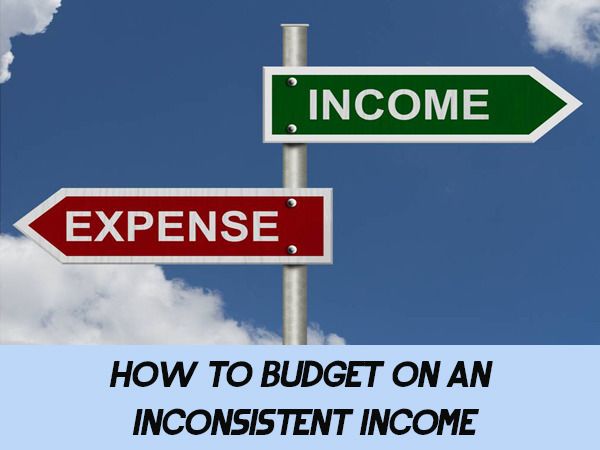Money matters is one thing that causes us headaches especially if you have an inconsistent income. So, today, we have a very helpful guest post about it.

Budgeting each month can be fairly easy for some people if they have a fixed monthly income to rely on. But, what if the monthly cash flow you are supposed to anchor your finances on is uncertain? Your expenses can easily get out of control if you don’t maintain a financial plan and you may end up not being able to stretch your income, enough to cover for all your monthly needs and obligations.
Here are some tips on how to create a personal budget when your month to month income is inconsistent.
1. Maintain a savings account. – If you don’t have any savings yet, start by opening a separate bank account to act as a buffer so you can meet your urgent expenses in case your income comes in late. Nowadays, there are microsavings accounts that you can help you achieve this goal. If you feel that your income is too small to start saving, you can begin by putting aside just P5 or P10 a day. While this may seem like a very small amount at first, you’ll be surprised at how quickly it can accumulate as you save some money on a daily basis.
If you can add more, then do so. Your spare change can go a long way; but make sure that you save the amount that you’ve decided on every day. And put it aside before you spend for anything else, for example, first thing in the morning or before you go to sleep at night. You can open a time deposit account and deposit the money once you have collected a significant amount, say a few hundred bucks. If you keep the cash out of sight and away from your hands, you won’t be tempted to use it.
2. Project your expected cash inflow for the month. – Estimate the minimum amount of money you expect to come in monthly. To do this, list the details of your monthly income for the past year. If part of your income is predictable, meaning it is safe to assume that you will earn it within 30 days, use it as a base for your expected monthly cash inflow. Then compute the average of your “unpredictable” income for the year and add it to the base amount. The sum will be your projected cash inflow.
If your entire income for the year is “unpredictable,” take the smallest amount and use it as basis for your monthly budget. For example, if in 2013, the lowest amount you earned in a month was P8,000, this is what you should assume will come in every month and build your budget around that.
3. List down your fixed expenses. – These expenses need to be paid every month including your utility bills (i.e. PLDT, Meralco, and Maynilad bills), rent, amortizations, medication, Philhealth premiums, and so on. Get the sum of all these expenses. When your income comes in, settle these first. If your bills don’t all come in on time for you to add them up, make assumptions based on the highest amount that you’ve paid before.
4. Determine how much to allocate for variable expenses. – Deduct your fixed expenses from your expected income. For example, if the sum of your fixed expenses is P4,500, subtract it from P8,000 and you’ll get P3,500. This is the amount you should allocate for variable expenses such as food, groceries, and miscellaneous expenditure. You can adjust your expenses in this category based on how much money actually comes in, but make sure that you prioritize savings and your fixed expenses before you allocate to your variable expenses.
5. Develop the habit of thrift. – Don’t think that just because you have more money in your pocket in some days, you have more disposable income to spend freely. Make sure that you save at least a certain amount before you spend it. Remember, you may have lean months as well. At the same time, however, don’t forget to allocate some money for fun things that you like, since you also deserve to enjoy your hard-earned money; perhaps start saving for a Christmas or vacation fund.
eCompareMo provide a complete online comparison portal for Filipinos looking for quick, secure, and complete banking and insurance information in the Philippines. We help Filipinos make informed decisions when it comes on choosing the best credit card, loans, insurance and more for free.
Very helpful. You know, financial management is something that I haven't conquered yet, and this post comes in handy. Thanks.
These are great tips! Now that I have unsteady income, I would look into being really thrifty 🙂